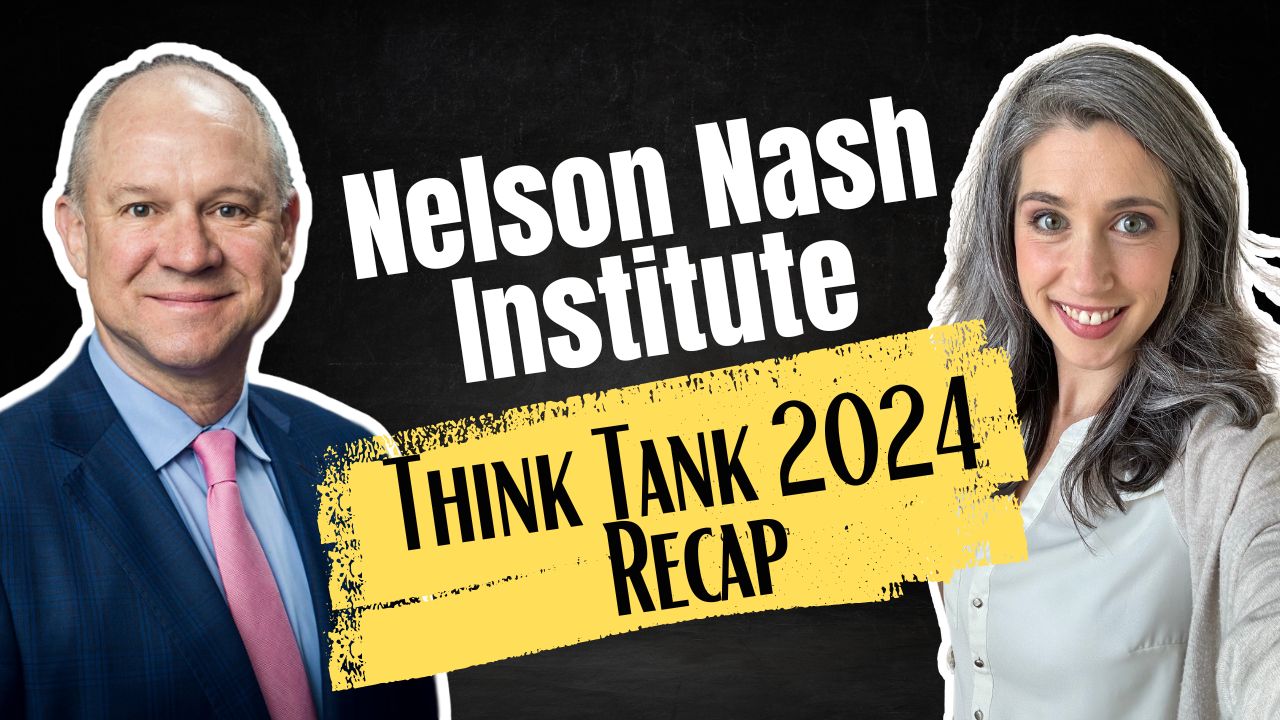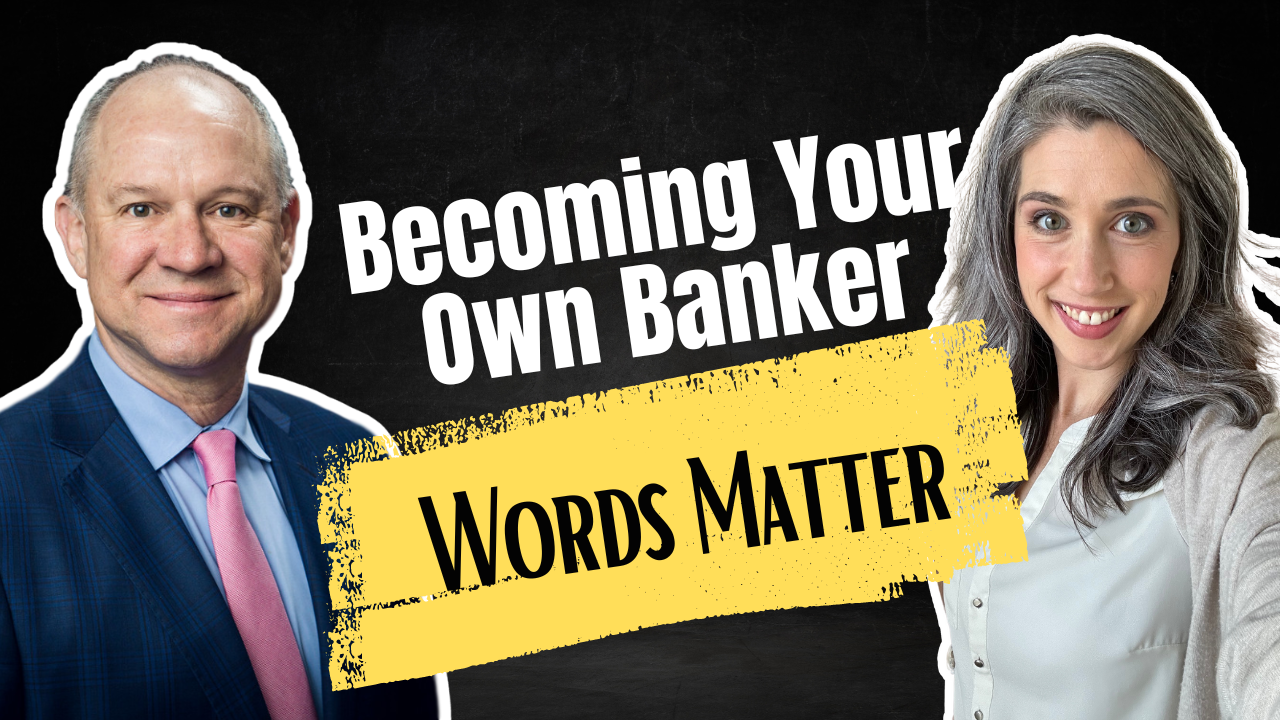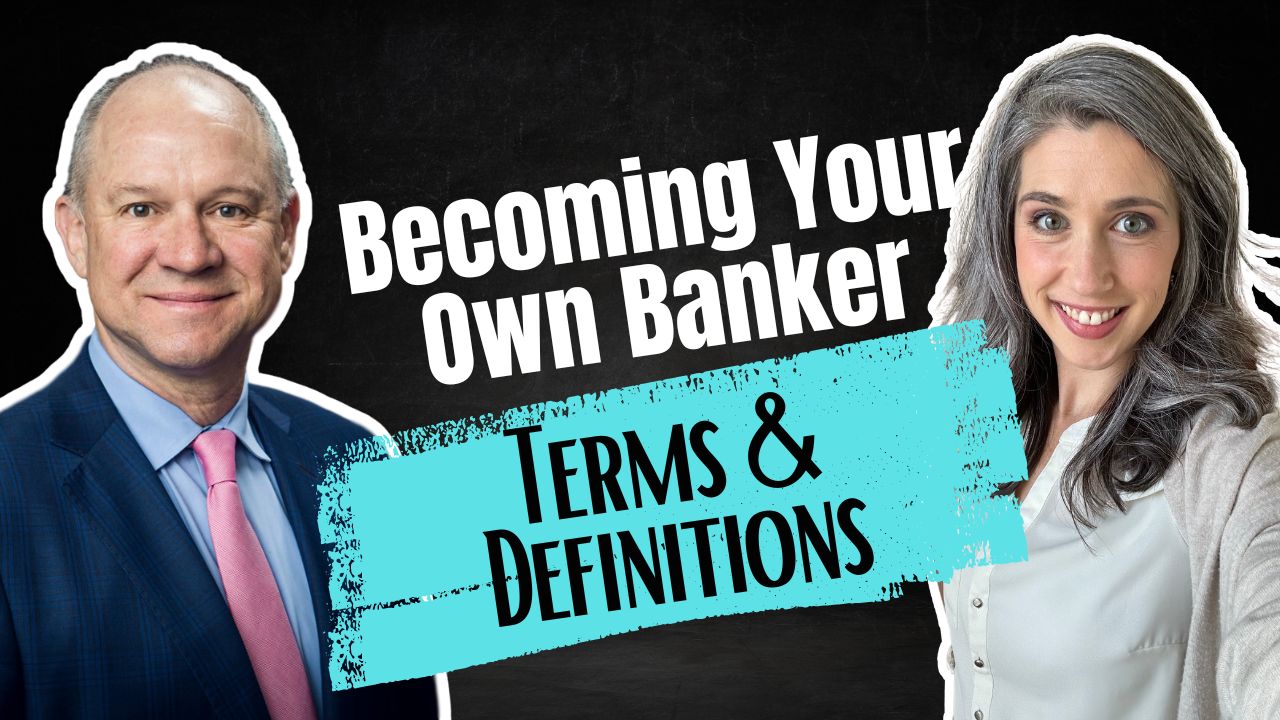
Nelson Nash’s Legacy: Think Tank 2024 Recap
Embark on a transformative financial odyssey with us as we reflect on our profound experiences at the Nelson Nash Think Tank for 2024. Unlock the doors to personal economic empowerment with the Infinite Banking Concept (IBC), a brainchild of the late Nelson Nash that revolutionizes the use of dividend-paying whole life insurance. We shed light on the historical roots and celebrate Nelson Nash’s legacy, dissecting how ‘banking’ transcends traditional institutions to become a powerful financial tool. As we honor Nash’s vision, we invite you to join us in forging a path toward reclaiming financial control and crafting a resilient legacy for generations to come.
Tune in to hear about the most important work the Nelson Nash Institute is doing to advance the message of the Infinite Banking Concept, preserve Nelson Nash’s Legacy, and help more families build sustainable wealth.
Podcast: Play in new window | Download (Duration: 1:04:53 — 74.3MB)
Subscribe: Apple Podcasts | Spotify | Android | Pandora | RSS | More
Table of Contents
Your Need for Finance
At the beginning of Becoming Your Own Banker, Nelson Nash states that it demonstrates that your need for financing over your lifetime will be greater than your need for protection. And this is the foundation of Infinite Banking, which helps families create their own financing resources first, in a way that also offers some protection.
The second thing he says, right at the beginning of the book, is that finance is not about investments. It’s about how people finance their lives, which can certainly include investments. This is because ultimately, interest rates will always go up and down, making investments a variable risk. And yet, there will be a constant need over your lifetime to finance or fund things. Therefore, the banking function should be a priority.
The Nelson Nash Institute, which hosts the annual Think Tank for IBC practitioners, is geared towards education for advisors. It helps boost camaraderie within the field, as well as ensure that IBC practitioners are on the same page about what Infinite Banking is and is not. This ensures that when you are speaking with an IBC practitioner, you’re speaking with someone who knows how to help you create a banking function for YOUR needs, without becoming unbalanced or ineffective.
[37:10] “[Nelson] said that we have to have a program [so] that if a person’s going to call this Infinite Banking, that they actually understand Austrian economics, they understand whole life insurance in general, and why it is a rock solid institution that’s been around longer than any of these other types of insurance.”
Nelson Nash’s Legacy: IBC Principles
Think Tank is a fantastic time for IBC practitioners to get together and reaffirm the basics, as well as build advanced skills. From Bruce’s perspective, here are some of the key takeaways about whole life insurance and IBC from the event.
1. Think Long-Range
Many people think about their finances from a short-range perspective, especially when chasing rates of return. They think about what’s good for them now, without considering the implications a few decades out. This is actually how we’ve been trained to think by society. So instead of making choices that delay gratification for greater success and stability later, people are stuck thinking only a few years ahead.
Whole life insurance helps people conduct long-range strategies because it’s an asset you can use over your whole life. While there’s a capitalization phase, you have the opportunity to make shorter-range decisions while knowing that in the long term, you’ve got your bases covered. After all, you’ve got replenishing capital, as well as a legacy to leave to your heirs for a generational approach.
2. Don’t Be Afraid to Capitalize
Capitalization takes time, and many people have concerns about “missing out” on opportunities during this phase. However, the capitalization phase—where you’re focused on building your personal reserves—is critical to your long-term success. You may feel like there’s not much happening but don’t be afraid to really focus on this time in your IBC implementation. Without your pool of capital, you can’t properly carry out the banking function.
3. Don’t Steal the Peas
This refers to the idea that just because you can do something doesn’t mean you should. More specifically, just because you CAN withdraw funds rather than leverage them, or leverage them without repaying loans, doesn’t mean you SHOULD. While this can seem harmless in the short term, since it is your money, this can lead to bad habits and the loss of integrity within your banking system. It’s better to be an “honest” banker and do things by the book so that you’re not short-changing your future self.
4. Don’t Do Business with Banks
By creating the ability to carry out the banking function for yourself, you reduce your need to do business with the banks. This puts you back in control of your money—when and why you can access it, as well as the terms of engagement. This level of control allows you to partake in more opportunities and can help you customize your experience. Tying up your money with the banks can put you into riskier positions.
5. Rethink Your Thinking
Part of the beauty of Think Tank is that you get a room full of professionals who are willing to rethink their thinking. These are people who have been in the business for years or even decades, who humbly adopt beginner mindsets in order to reinforce the basics and see the same issues in a new light.
Rethinking your thinking is an essential part of the growth journey for all people. So if you find yourself struggling with any of these ideas due to what you already know, be willing to approach them with fresh eyes and a blank slate. That way, you might just learn something new. Whole life insurance is a topic many people find themselves “rethinking” once they encounter IBC.
The Biggest Takeaway from the 2024 IBC Think Tank
Bruce has formally been an IBC practitioner for as long as the Nelson Nash Institute has been around, and before that was a direct student of Nelson’s. He’s attended the IBC Think Tank every year since 2009 with perhaps one exception, and he still learns new things. Better yet, he reinforces the basics that he does know—the tenets of IBC and why financing is so important.
[37:50] “The biggest takeaway [this year] was that the general public is starting to see the value of this, tremendously.”
People are waking up to their need for financing, and are looking to save more money and create better habits. This is great for the industry, because it can only strengthen the existing insurance companies, to the benefit of policyholders.
The Economic Value of Certainty
One of the great strengths of whole life insurance, of which there are many, is that it provides certainty. You know that your cash value won’t deplete, that you can use it when you need it, and that you have a death benefit coming your family’s way. This certainty is of great economic value, because it allows you the room to make riskier decisions without fear of losing your money, disinheriting your heirs, or otherwise causing yourself harm.
On top of that, this certainty allows you to live more freely, because you don’t have the concern of what happens to your loved ones after you’re gone. Insurance, in this way, can create so many opportunities—both economic and personal—that it’s something to aim for.
The barrier to certainty, however, is staying focused on surface-level concerns, like rate of return. After all, if you’re only chasing a high rate of return, you can never have certainty, because that’s something that is ever-changing. If you build up from a foundation of certainty with whole life insurance–like guaranteed death benefit, policy loans, growth, etc–then you free yourself to think about things like rate of return without hinging your entire personal economy on the idea.
Does the Insurance Matter?
When we talk about certainty, we talk about whole life insurance, but what about other types of insurance? The truth is that whole life insurance is unique in its guarantees, but that doesn’t mean that other types of life insurance are bad. The problem, once again, is that they don’t offer the same certainty. You can’t be certain that term insurance will be there when you die. You can’t even be certain that universal life insurance will be, despite being called “permanent” (which is really a misnomer). If you start with whole life insurance, you know it will be there. Then if you want to build out other policies, whether to try chasing a rate of return or even to round out your human life value, you can do that with confidence BECAUSE of your certainty with whole life insurance.
[51:31] “The best insurance policy is the one that’s in place at the time of your death.”
Links Mentioned:
- 3 Benefits of Whole Life Insurance in Your Retirement Plan, with Wade Pfau
- Maximizing Retirement Income with Whole Life Insurance, with Wade Pfau
- Beaver Bankers by Becca Wilhite
Book A Strategy Call
If you’re committed to leaving a financial legacy for your loved ones, I invite you to book a call at https://sevengenerationslegacy.com/strategycall. It’s time to take control of your financial future and build a legacy that will benefit your family for generations to come. The journey may be complex, but with the right guidance and strategy, it’s a journey well worth undertaking.
Becoming Your Own Banker, Part 29: Words Matter
Ever felt like financial jargon was designed to confuse rather than clarify? Join us as we navigate the labyrinth of financial terminology, particularly within the infinite banking sphere. It’s not just about learning by rote; it’s about cementing a rock-solid financial strategy based on clear, precise language. By dissecting common misconceptions, we aim to transform…
Read MoreBecoming Your Own Banker, Part 28: Infinite Banking Definitions
Have you ever felt like you’re on a financial hamster wheel, constantly spinning but never gaining traction? Join us as we unpack the epilogue and glossary of Nelson Nash’s “Becoming Your Own Banker.” It’s a journey through the intricate philosophy of IBC, as we cover Infinite Banking definitions that shows how effective money management can…
Read More


